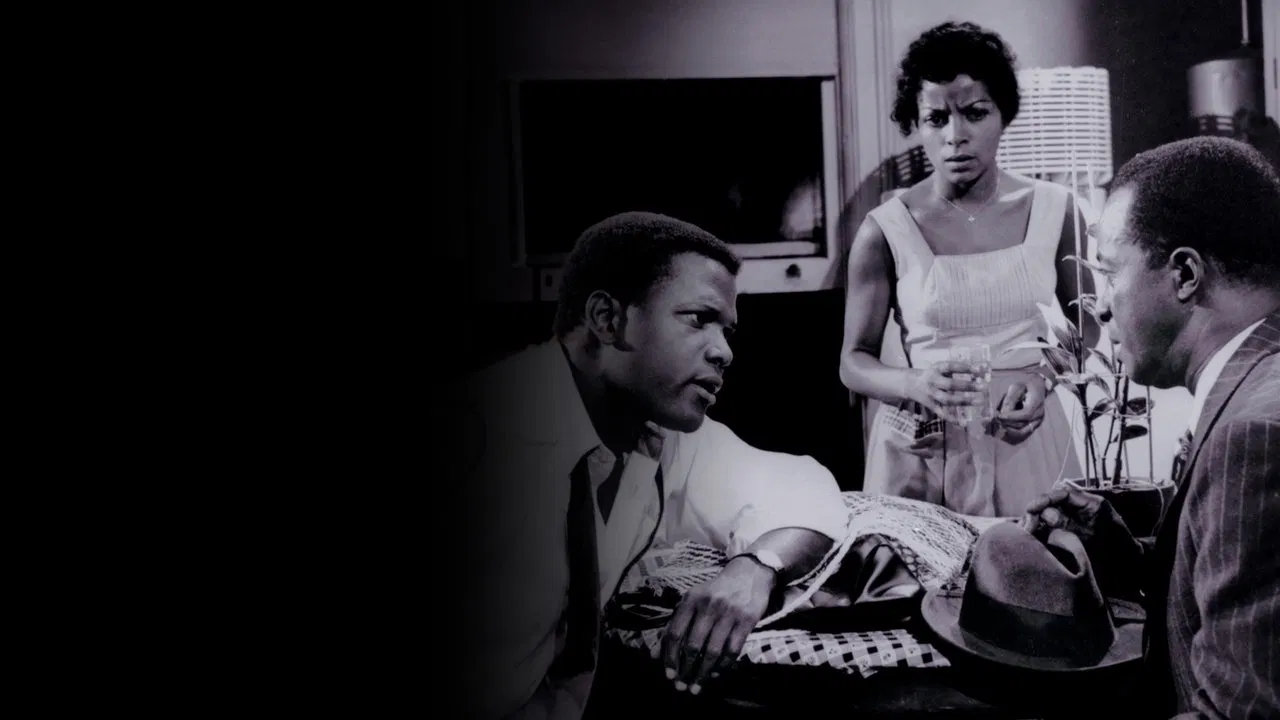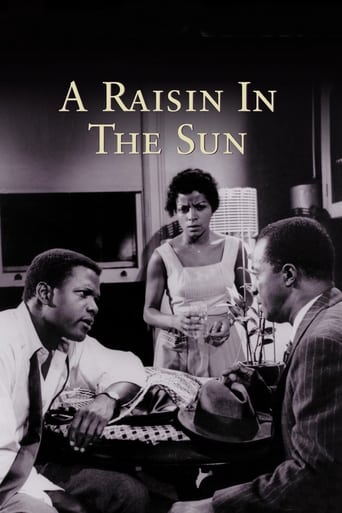

The Younger family are a working class black family with three generations, five people, living in a cramped apartment. However, it appears their fortunes are about to change as grandmother Younger is about to receive a large insurance payout. However, there is considerable disagreement within the household on how the money will be spent, resulting in friction within the Younger family.Powerful and profound, but takes forever to make its point - overwrought and unnecessarily protracted. The ultimate theme is very admirable, and very necessary, especially in the 1960s. Well set up too, in getting to the punchline.Too well set up. You have to wait for about 90 minutes for anything like a degree of focus or for a payoff for everything that came before. Until then the movie seemed to drift.Worst of all, the dialogue is incredibly padded. The writer's reasoning seemed to be - why use 10 words when 100 will do? Every bit of dialogue is long-winded and feels like a speech, enough to make even Shakespeare seem succinct. So many times I caught myself thinking "Geez, just get to the point!".Some brevity and this would have been a superb movie. Instead it is a bit of an ordeal, with a good payoff at the end.
... View MoreWalter Lee Younger (Sidney Poitier) is a chauffeur feeling under the thumb of the ladies in his life. His wife Ruth (Ruby Dee) is pregnant and considering an abortion. His mother and sister Beneatha are also living with them in their apartment in Chicago's south side. His father is recently deceased and his mama is expecting a large insurance cheque. Walter expects to use the money to buy a liquor store but his mother has other thoughts. His sister wants to pay for her education. She has a fight with mama over religion. She brings home Nigerian Asagai who introduces her to Nigerian culture. Her integrated boyfriend George Murchison (Louis Gossett Jr.) is dismissive of any old world culture. Mama buys a house in a white neighborhood to try to pull the family back together. Mark Lindner comes to offer to buy it back to avoid racial tension.This is an important black play and an important black movie. There are a lot of family conflicts in this story. Some of it feels like piling on especially the abortion question. I would like a more simple argument about money. I am also not impressed with Sidney Poitier. He's being whiny. Maybe he is intended to be whiny but it would be better as frustrated anger. For me, the standout is Claudia McNeil playing the mother. She is both powerful and powerless over her children. She is playing on several different levels. The sister also feels whiny but she's younger and it fits more than her brother. There are some interesting work here and an important message in the end.
... View MoreSidney Poitier's A Raisin in the Sun exceeded my high hopes. Easily a 10/10 film, it is so very touching and uplifting with great characters and great performances. Humorous, too! This film delivers in a major way.Ideally, a film should have something intelligent to say about life, about reality. A Raisin in the Sun is such a film and more. So, if the reality of human life in general interests you, consider yourself well-advised to watch this powerful film. I have little doubt that you will enjoy it.It is, as of this posting, number 34 on my top 250.
... View MoreA substantial insurance payment could mean either financial salvation or personal ruin for a poor black family. A colored man wants to be somebody but feels that the colored woman (his wife) is bringing him down.The film is an interesting exploration of race and class. On the one hand it features an all-black cast, which is a notable achievement for 1961. Yet, at the same time, it shows the plight of the black woman -- even the black man, who feels oppressed, pushes the women in his life down rather than raise them up.There should only be one feeling between men and women, but this belief is because all the women in novels have been written by men.The Nigerian, who speaks fluent English, tries to pick up a young American woman, calling her "one for whom bread is not enough". He raises the interesting point that languages do not translate well, but his fluent English clearly suggests he is a man who knows the sense of his words.
... View More